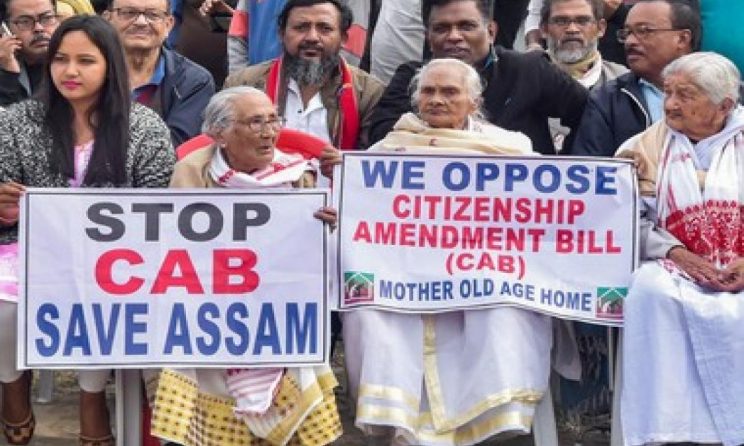
India has moved a step closer on Tuesday towards the significant challenge to the country’s secular constitution. Indian lawmakers have now finally passed the Citizenship Amendment Bill through the lower house of Parliament where the Hindu nationalist Bharatiya Janata Party (BJP), which has been led by Prime Minister Narendra Modi, has a huge majority.
The leading party BJP came to power under the Narendra Modi government in the year 2014 but won a landslide reelection in May with a bigger majority. From that time, the government has embarked on progressively bold moves for reshaping India as per its ideology, sidelining Muslims in the procedure.
Citizenship Amendment Bill
The Citizenship (Amendment) Act, 2019 which has been passed by the Parliament of India on 11 December 2019, has created lots of rage in India, especially in Muslim communities.
The reason behind this is that the act amended the Citizenship Act of 1955 by offering a path to Indian citizenship for Hindu, Sikh, Buddhist, Jain, Parsi, as well as Christian religious minorities that had escaped persecution from Pakistan, Bangladesh, and Afghanistan before December 2014.
And Muslims were not given such eligibility in this bill. This was the first time ever and the first act as well where religion had been openly used as a criterion for citizenship under Indian law.
The passage of the Act triggered many types of protests as well as criticisms. In the eastern regions of India, the protesters were against the naturalization of any and all refugees or migrants. In some parts of India, political and student activists protested that the law “marginalizes Muslims, is prejudicial against Muslims” as well as seeking that Muslim migrants along with the refugees should also be granted Indian citizenship according to its secular grounds.
The leading party, the Hindu nationalist Bharatiya Janata Party (BJP), had promised in earlier election manifestos for offering Indian citizenship to persecuted religious minorities from neighboring nations. Under this 2019 amendment, all the migrants who had entered India by 31 December 2014, as well as had suffered “religious persecution or fear of religious persecution” in their country of origin were made eligible for citizenship.
Under the new act, the Muslims from Pakistan, Bangladesh as well as from Afghanistan are not offered citizenship. Critics, on the other hand, have questioned the exclusion. The Amendment limits itself to the Muslim-majority neighbors of India as well as, in addition, takes no acquaintance of the persecuted Muslims of those nations. As per to The Economist, if the Indian government was apprehensive about religious persecution, it should have involved Ahmadiyyas – a Muslim sect who have been “viciously hounded in Pakistan as heretics”, as well as the Hazaras – another Muslim sect who have been murdered by the Taliban in Afghanistan. They should also be treated as minorities.
Countries like Pakistan, Afghanistan, as well as Bangladesh, are Muslim-majority countries that have modified their Constitutions in recent years in order to declare Islam their official state religion. As a result, as per the Indian government, Muslims in these Islamic nations are “unlikely to face religious persecution”.
On the other hand, the government states that Muslims cannot be “treated as persecuted minorities” in these Muslim-majority republics.
In addition to that, the Act also does not consist of migrants from non-Muslim nations fleeing persecution to India, mainly Rohingya Muslim refugees from Myanmar, Hindu refugees from Sri Lanka, and Buddhist refugees from Tibet, China.
On the other hand, the amendment also relaxed the residency requirement in order to naturalize these migrants from eleven years to five. Instant recipients of the Bill, as per the Intelligence Bureau of India, are going to be a total of 31,313 refugees, out of which 25,447 are Hindus, 5,807 are Sikhs, 55 Christians, 2 Buddhists, and 2 Parsis.






